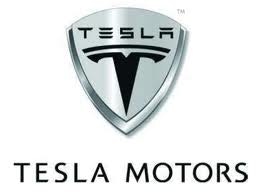This past week was an exceptionally bad one for electric vehicle (EV) companies. An international electric car company named Better Place has finally closed shop and filed for bankruptcy. After several years of operation and various financing rounds led by Morgan Stanley and HSBC, investors simply grew tired of the company and threw in the towel. Approximately $1.2 billion of invested capital evaporated over night. Now that Better Place has provided a fabulous example of value destruction, the question now remains whether other visionary electric vehicle manufacturers are bound to meet the same fate.

Is there anyone else?
Back in 1997, Toyota unveiled the world’s first commercially mass-produced hybrid car (the Prius). With mounting fears of environmental pollution and over- dependency on Arab oil, the new vision of electric vehicles was quickly embraced by many politicians and investors alike. And Better Place wasn’t doing it alone. Tesla Motors Inc (NASDAQ:TSLA), went head first and became the first IPO of an American car manufacturer since 1956. Even Berkshire Hathaway Inc. (NASDAQ:BRK.A), led by Mr. Buffett decided not to stand on the sidelines of this mega green trend. Buffett purchased a 10% stake in BYD Company for about $232 million in 2008 through Berkshire Hathaway Inc. (NASDAQ:BRK.A)‘s subsidiary MidAmerican. The purchase made MidAmerican the fourth largest shareholder in the company.
It’s just hype… or is it?
The main concern over any “green” investment is whether it’s more environmental or more profitable. In other words, there are always looming doubts regarding the future cash generation capabilities of the new venture. Even BYD, Buffett’s Chinese jewel, has caused him a great deal of disappointment at first. From 2008 to 2011 BYD’s net profit decreased 89% to 275 million yuan in the first half of 2011. For the full year, the total number of cars sold slipped 13.3% from 2010, which the company attributed to a downturn in the domestic automobile market and a decline in the overall market share of domestic brands. The year ended with revenue down 0.8% and profit down 44%. Tesla Motors Inc (NASDAQ:TSLA) has been having tough times as well. The inventor of the Model S has lost an aggregate of $800 million in the years 2010 – 2012 alone. And that’s not even counting its first years of operation. These massive losses led many investors to believe that electric vehicles are nothing but smoke and mirrors.
But things are starting to turn for the EV industry. Tesla Motors Inc (NASDAQ:TSLA) has managed to pull its first profitable quarter since its inception. The company recorded $562 million in revenue and earnings of $15 million, or $0.12 a share. Analysts surveyed by Thomson Reuters had predicted earnings of four cents a share on $500 million in revenue. And BYD wasn’t left behind either. Berkshire Hathaway Inc. (NASDAQ:BRK.A)’s investment reported that new models boosted sales in the first quarter 2013, as BYD released the Suri compact car and S6 SUV in the second half of 2012. sales in its solar cells business, which hampered full-year 2012 result, continued but narrowed, due mainly to less competition in the global photovoltaics market and rapid growth in the rechargeable battery business. The company reported that it also saw new orders for smart phones from existing customers and new smart phone projects with handset manufacturers expanded, along with new tablets and other products. While other segments have been weighing on results, automobile sales increased to 51% of BYD’s sales in 2012, from 32% of total sales in 2008. That’s might impressive and explains why Berkshire Hathaway Inc. (NASDAQ:BRK.A) has raked 200% profit on its BYD investment.
The secret sauce for success
I believe there are two main factors that differentiate BYD and Tesla Motors Inc (NASDAQ:TSLA) from the very ailing, and now bankrupt, Better Place. The first is government subsidies. The sector of EV is still at its infancy and it must be heavily supported by the government due to heavy initial investments in infrastructure, batteries, etc. China has recently reiterated its commitment to the success of BYD. Tesla Motors Inc (NASDAQ:TSLA) is also heavily supported by the U.S government. In contrast, The state of Israel has diminished its support to Better Place over the years, until it ceased supporting it altogether. That makes all the difference.
The second factor is driving experience. Tesla Motors Inc (NASDAQ:TSLA) is famous for making sexy cars like the Roadstar. It’s a car that simply can’t be ignored. BYD makes compact cars that are very practical for the Chinese consumer. Better Place, on the other hand, decided that it wants to install its electric engine into a Renault. Nobody is excited about driving such a boring car. It’s simply not attractive enough. And that’s why Better Place has sold fewer than 1,500 cars globally. That’s really sad.
The Fool drives an EV
In the EV industry, more than in any other investment, it’s critical to choose the right company. Heavy governmental support, successful cars and tight overhead controls are a must. Otherwise, everyone else will end up like the bankrupt Better Place.
The article Are Electric Vehicle Companies Doomed? originally appeared on Fool.com.
Shmulik Karpf has no position in any stocks mentioned. The Motley Fool recommends Tesla Motors (NASDAQ:TSLA) . The Motley Fool owns shares of Tesla Motors. Shmulik is a member of The Motley Fool Blog Network — entries represent the personal opinion of the blogger and are not formally edited.
Copyright © 1995 – 2013 The Motley Fool, LLC. All rights reserved. The Motley Fool has a disclosure policy.


